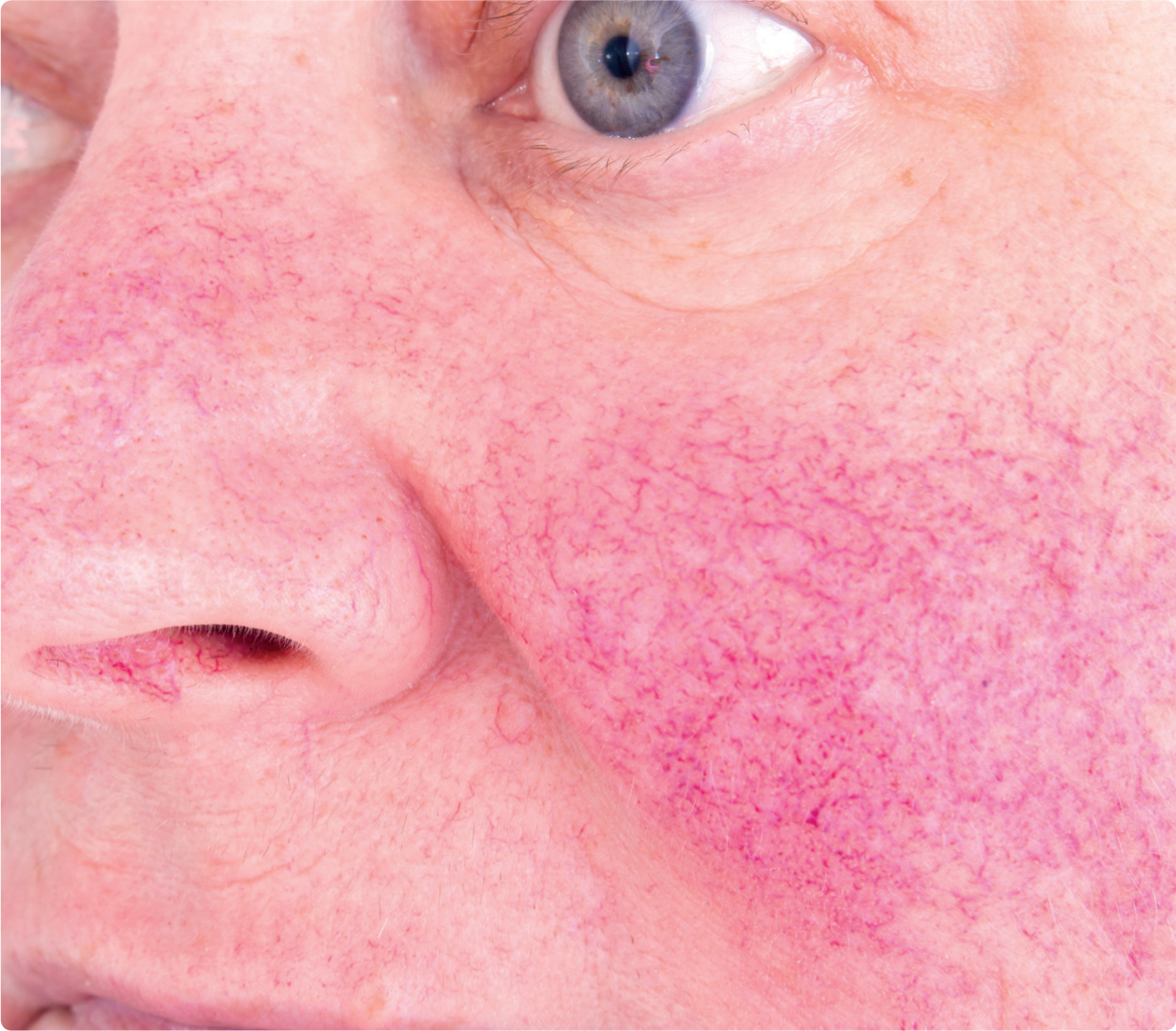Having a skin condition that causes a visual difference, such as acne vulgaris, rosacea, atopic dermatitis and psoriasis, poses challenges with regard to physical and mental wellbeing, specifically affecting body image and satisfaction, self-concept and is further associated with psychiatric comorbidities, such as depression and anxiety (Tuckman, 2017). The rising impact of social media usage and its role in patient education, paired with existing literature on the pathogenic role of diet in dermatologic conditions, has created further obstacles in the public perception of these skin conditions (DeMartino et al, 2017). This essentially transfers the patient's condition and its treatment into the public domain which, in turn, introduces further challenges and complexities. This includes those affected being subjugated to public opinion and perception, as well as parental views formed by the media on their skin condition and diet (Nguyen et al, 2016). These factors further intensify psychosocial implications, including body dissatisfaction and disordered eating, either as part of resolving their condition or as a manifestation of a psychiatric morbidity (Griffiths et al, 2018).
Societal pressures and influences
With the psychological distress and concerns that are associated with these skin conditions, societal impact is significant in forming, as well as eliminating, factors developed by the individual of concern. Particularly, family and friends can help to alleviate the negative effects of a patient's skin condition through support, subsequently increasing body satisfaction and self-efficacy (Khalid et al, 2018). Case studies have, however, reported the negative psychological impact caused through harmful or misguided familial influence which, when paired with external social environment, fuels the widespread belief that conditions, such as acne, stem from dietary factors. This belief is illustrated by the fact that some parents or guardians modify their child's behaviour, or dietary intake, by proxy in the hope of symptom reduction (Chan and Ridd, 2019). These beliefs, attitudes and behaviours are further shared and reinforced by the media, TV and internet, which are influential in how the affected individual views their condition and, therefore, modelling their own attitudes and behaviours (Nguyen et al, 2016).
Self-concept and self-efficacy
The concept of dietary-related aetiology and treatment of skin conditions implies that the affected individual is actively contributing to the onset of their condition and its symptoms through their choice of food consumption. This results in attributing blame onto the sufferer, which further implies that the individual requires dietary and lifestyle adjustments, challenging their locus of control and influencing their attitudes towards self-efficacy and self-concept—inciting somatisation and stigmatisation (Nguyen et al, 2016; Fabbrochini et al, 2018). Proportionately, patients report carrying out certain behaviours as part of treating their condition, as illustrated by Nguyen et al (2016), who reported that 71% of respondents attempted to change their diet in hope of improving their condition, therefore experiencing disordered eating or manipulating their diet.
Negative appraisal for their symptoms, behaviours and choices further includes the sense of embarrassment and shame, both externally (the fear of being judged by others) and internally, therefore displaying negative self-evaluations and self-critical opinions and thoughts. Beliefs that relate to their self-efficacy can be further exacerbated or influenced by the unsuccessful treatment and management of their condition, as well as negative responses by their healthcare providers. This, in turn, creates a sense of ‘loss of faith’, which can lead to the patient self-managing their condition and referring to external sources for a cure (Johnston et al, 2018).
Body dysmorphia and psychological consequences
In addition to the consequences to the individual's health due to their skin condition—such as discomfort or pain, side effects from required treatment and chronic itching—skin conditions are highly associated with psychiatric comorbidities and impacted quality of life. For instance, Tohid et al (2016) found a significant link between depression and psoriasis. Moreover, social anxiety or social phobia, health anxiety, poor body image and suicidality are further psychiatric concerns which are associated with skin conditions such as acne.
Skin conditions have been further associated or linked with disordered eating and diagnosed eating disorders, arguably due to the increase of diet-related ideology on the aetiology and treatment of these conditions (Gupta et al, 1992; Mahto, 2018). The manifestation of the beliefs comprised in disordered eating as part of self-management have shown correlation to body dysmorphic disorder (BDD), where a patient shows the belief that their physical appearance is distorted or ugly (Koblenzer, 2017). Though skin conditions are not exclusively causative for BDD, further evaluation which includes, or favours, individual subjective assessment will provide predictors based on their judgements and experiences (Özyay Eroglu et al, 2018). Instead, observing and believing that eating disorders and BDD are not confined to the person's perception of bodyweight and shape, and can expand into other aspects of body image, such as distress and dissatisfaction over skin condition (Gupta and Gupta, 2001).

Changes in behaviour and coping mechanisms
Affected individuals report increased stigmatisation with lowered self-esteem and wellbeing, which induces an array of behavioural changes or strategies. These changes are varied in aetiology; however, many of these induced behaviours are formed as a coping-mechanism—either as emotionally-focused or problem-focused. With socialising and self-consciousness, the desire to alleviate distress and improve symptoms of their condition through behavioural strategies, such as avoidance or concealment, are prevalent (Krüger and Schallreuter, 2015; Johnston et al, 2018).
Avoidance or concealment primarily consists of make-up application and avoiding social interaction. However, avoidance behaviours may further spread into an individual's diet and the overall management of their condition, either due to internal influences (by improving their self-efficacy and self-concept) or external influences (by carrying out socially acceptable behaviours or modifying their behaviours or diet to accommodate the public's view or perception) (Magin et al, 2006; Johnston et al, 2018). Specifically, avoidance may include eliminating entire food groups (such as dairy) or foods which are deemed ‘unhealthy’ or ‘not allowed’, avoiding eating in front of people due to fear of being stigmatised or judged, or concealing their diet and condition by avoiding social interactions (Magin et al, 2006; Nyugen et al, 2016; Mahto, 2018).

Food allergies and food-related symptoms
The role of food allergies (i.e. eczema development) and food-related symptoms (i.e. rosacea) that are associated with skin conditions may be complex in both their role in treatment and comorbid restrictive or disordered eating. Individuals commonly exclude foods due to personal experiences and beliefs, despite the role of diet and allergy remaining unclear, particularly in adult eczema. Individuals further undertake dietary changes without having received professional advice or guidance. Consequently, individuals who carry out food exclusion without guidance or required testing, such as allergy testing, may be monitoring their condition incorrectly or inaccurately. This is due to reasons such as response bias or lack of patient education. Lack of guidance or monitoring of patients may make them more at risk of disordered eating; therefore, evidence for dietary changes and objective management and support from a healthcare professional is required (Guibas et al, 2013; Chan and Ridd, 2019).
The role of healthcare professionals and potential interventions
While medical and surgical interventions are a primary concern to healthcare professionals for the treatment and management of presenting skin conditions, psychological intervention and support is also required. Healthcare professionals play a vital role in facilitating the acceptance of an individual's condition, while also destigmatising and validating concerns over their appearance or body image. With the complexities that surround societal pressures on appearance, internal and external acceptance, as well as associated beliefs, behaviours and comorbid psychiatric concerns, predominantly require or benefit from self-management interventions.
Self-management techniques or support may include:
Disordered eating is a term that describes irregular eating behaviours, which include rigid rituals and routines, such as assigning foods as ‘good’ or ‘bad’ and feeling guilty or shameful over eating. Though disordered eating is not a diagnosis and does not align with an existing diagnostic criteria, it is described as a spectrum of eating-related concerns which vary from dieting to a diagnosed eating disorder (Pereira and Alvarenga, 2007).
Mindfulness has been found to be effective in those with skin conditions and disordered eating by alleviating social anxiety, reducing distress and negative self-concepts, while improving quality of life (Montgomery et al, 2016). Treatment that accommodates psychological comorbidities in skin conditions, such as BDD or anxiety, may be further facilitated by alternative therapies, such as acceptance and commitment therapy or habit reversal therapy (Hong et al, 2018). However, in complex cases, either specialist intervention and treatment or appropriate online support and resources should be provided.
Conclusion
The psychological and social impact of skin conditions is a growing concern with the increasing popularity of media, or social media, and its influence on dietary trends that are actively associated with ‘curing’ skin conditions, but which lack an evidence base. While psychosocial concerns within dermatology are well-acknowledged, current influences, such as social networking websites or apps, introduce new complexities to the treatment and management of skin conditions. Therefore, changes, awareness and education are required in order to adapt to these societal changes which are influential in modelling behaviour.
This article has discussed the causes and impact of diet in those with a skin condition, as well as corresponding or associated concerns and experiences of impacted body image and negative self-concepts. It has also considered both internal and external roles on the development of diet manipulation or restriction, therefore comorbid disordered eating, as well as underpinning societal, educational and psychological interventions which alleviate dietary beliefs and behaviours. The pervasiveness of appearance-related stigma and societal pressure in affected individuals reveals the need for change and interventional input–intervention which aims to support and destigmatise those affected, while also supporting their families, as well as healthcare professionals, to promote necessary changes.


